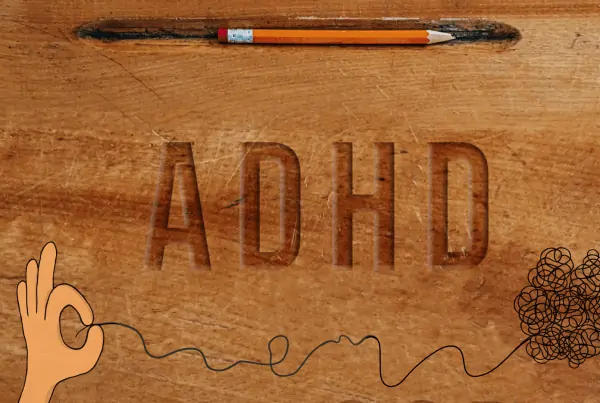If you notice a sudden change in your teen’s behavior or attitude, you may be wondering how to tell if your child is using drugs. Teen drug use is a divisive yet prevalent issue. While overall illegal drug use is at its lowest in two decades, that doesn’t mean it isn’t still widespread. Research indicates that nearly two-thirds of college students regularly use alcohol, and over a quarter regularly use marijuana, while as many as half of all teens have tried weed at least once, and nearly all have tried drinking. In this article, we’re exploring a common question we hear from parents – how to tell if your child is using drugs?
How to Tell if Your Child Is Using Drugs
We’ve all been teens, and we know what comes with that age. Things are confusing, exciting, difficult, and overwhelming. Teens experiment, think little of the long-term consequences of their decision and try to push the envelope. They’re discovering themselves and the world around them. And it’s often up to the adults around them to try and keep them safe as they’re making their way towards adulthood. But what does that mean, exactly? It means keeping an eye out for the signs – and acting on them in a timely manner. The earlier a teen’s substance use issues are discovered, the faster they can be addressed, and the less severe the long-term consequences. Here’s how to tell if your child is using drugs.
Look Out for Paranoia and Confusion
Teen mood swings and behavioral changes are normal. But there are certain behaviors and patterns that are more suspicious than others. Look out for frequent bouts of confusion, sudden episodes of anxiety, and paranoid behavior. Even if your teen isn’t having a drug problem, the onset of anxiety symptoms still warrants seeing a professional together. Anxiety and depressive disorders often begin around adolescence.
Look for Lapses in Memory and Cognitive Signs
Alcohol, stimulant drugs, and depressant drugs alike all affect the brain in different ways, but the one thing they have in common is a cognitive decline and memory issues. Frequent binge drinking, illegal use of stimulants and “study drugs”, as well as frequent recreational use of anxiety medication or CBD can impact memory retention, cause holes and lapses in memory, and affect a teen’s ability to solve problems, retain information, and communicate effectively. These can be short-term issues, but the longer an addiction lasts, the longer these effects can linger in the brain.
Drug Paraphernalia
The most obvious sign of drug use is drug paraphernalia – and some types of paraphernalia are more obvious than others. Keep an eye out for:
- Rolling papers, filters, e-cigarettes, and bongs.
- Spoons, needles, tourniquets, and pipes.
- Tubes, razor blades, and small mirrors.
- Aerosol cans, rags that faintly smell like solvents, and chemical bottles.
Alongside commonly used drugs like alcohol, nicotine, and marijuana, teens also use:
- MDMA or Ecstasy
- ADHD medication
- Anxiety medication
- Painkillers
- Solvents and inhalants
- Cocaine and other designer stimulants
- Methamphetamine
- Heroin
Becoming Defensive and Irritable
Drugs can help soothe anxieties, trigger euphoric feelings, and transport people into a completely different state of mind. But these pleasant experiences are undercut by immediate short-term and lasting long-term consequences, ranging from brain damage to organ health issues, psychological and physical dependence, withdrawal symptoms, increases in anxiety and depression, physical reactions, and much more.
Some of these are more obvious than others – but one of the first signs of recurring drug use and growing addiction is a spike in irritability and defensiveness. If your teen is becoming angrier and angrier, and less and less communicative, then something might be wrong. Talk to them, remain calm, express your love, and try to get to the bottom of what they’re feeling. Be sure that they understand that you’re only interested in what’s best for them, now and in the long term.
It can be really difficult to get a teen to admit that they’re using drugs, let alone that they’re addicted. Teens know that it’s illegal and that they shouldn’t be doing it. Part of the reason it’s so frustrating for them is that they’ve lost control, and they’re lashing out in anger at both others and themselves. Be patient, and expect to talk to your teen multiple times before you get to figure out what’s going on.
Why Teen Drug Use Is a Massive Issue
On a purely medical level, the adolescent brain is far more susceptible to the long-lasting impact of addictive drugs, particularly when it comes to creating dependence. Teenagers who use drugs are more likely to become addicted to them later in life versus people who first used drugs in their early to mid-twenties, and they’re far more prone to poor decision making and excessive risk-taking, from unsafe sex to drunk driving and reckless endangerment of themselves and others.
This is partly because the teen brain is not yet wired to take long-term consequences into account. Risk-averse behavior is rare in teens, and the adolescent brain hasn’t fully matured to think things through to the same capacity as the adult brain. That does not mean that teens are incapable of realizing their consequences, or even understanding the risks involved with certain decisions – it just means they’re less likely to act on this information, are more likely to forget about it, and much less likely to care.
Preventing Drug Use in Teens
Parents tend to overestimate the impact of peer pressure and forget the invaluable influence they wield themselves. Even as your teens seem to pull away from you and feel increasingly distant, it’s important to realize that teens are still much more likely to model their parents’ behavior when with their peers and that their parents have a strong influence on who they choose to be friends with, as well. This depends mostly on a good parent-child relationship. This is perhaps the most powerful protective factor against teen substance use issues. Other important protective factors include:
- A strong attachment to the neighborhood (involvement in youth groups, local firefighting, outreach programs, volunteering organizations).
- Research-based prevention programs.
- An authoritative (not authoritarian!) parenting approach.
- Local policies affecting structural racism, economic opportunity, and police bias.
Of course, it’s also important to be realistic. Nearly half of all teens try an illegal drug, and almost all teens get a taste of alcohol before they’re legally allowed to drink. That doesn’t mean the majority of teenagers struggle with lifelong drug addiction and poor outcomes. These are just a few weighty risk factors among a list of important risk factors that increase the risk of a teen becoming addicted but never guarantee it. Understand what these risk factors represent, and how certain protective factors can work against them.
If your teen is addicted to drugs, know that recovery is a long-term process. There are many inpatient and outpatient clinics that specialize in treating dual diagnosis disorders in teens. These clinics can help equip both you and your teen with the tools needed to combat addiction in the long term, survive and overcome relapse, and develop a series of coping mechanisms to deal with daily stressors, and control cravings and impulses. Professional help should never be stigmatized or frowned upon. Get yourself and your teen the help you both deserve.









